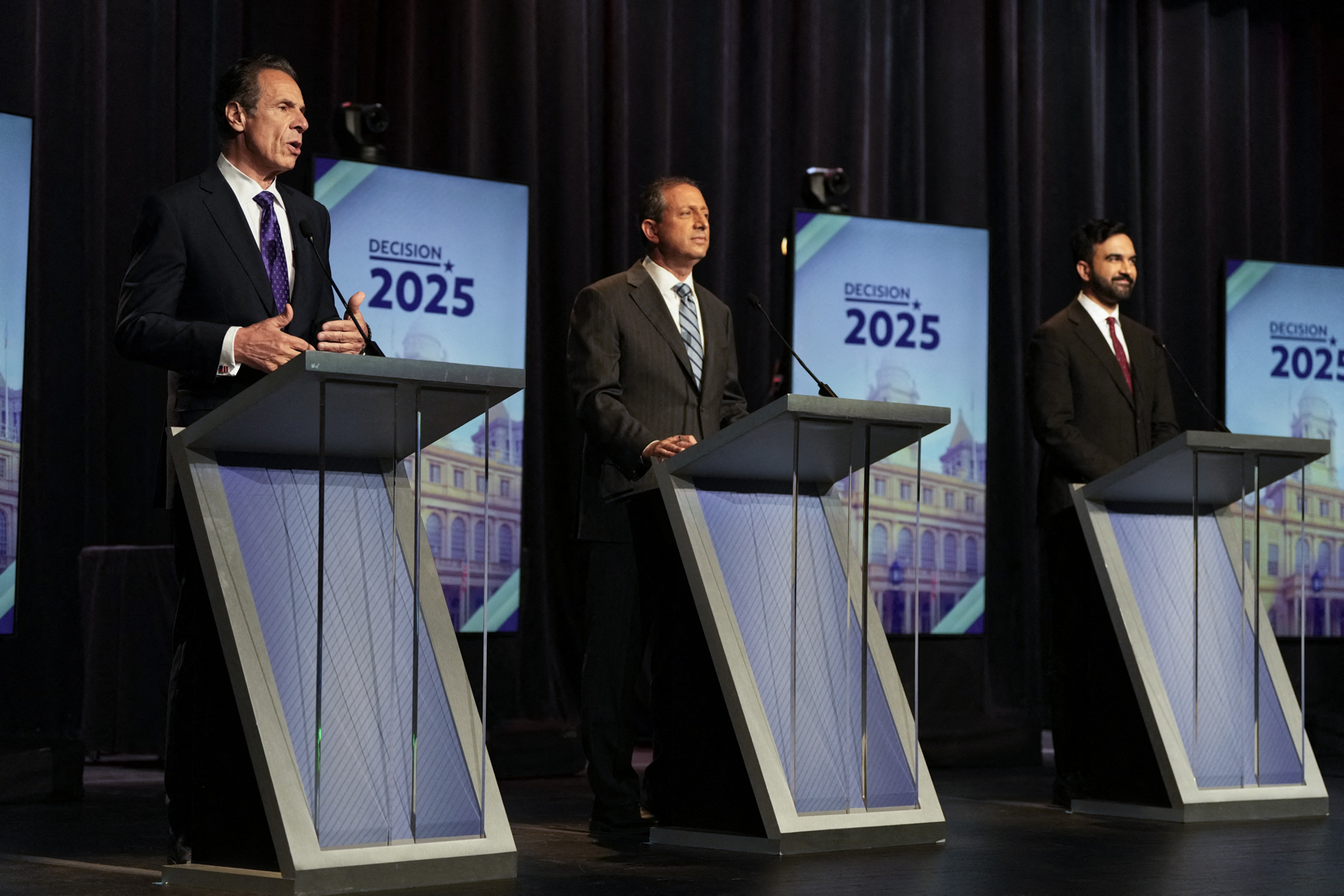Dear Dispatch readers,
It might be an “off-year”—the year between presidential and midterm elections. But don’t be fooled. There's plenty of consequential politics unfolding in Washington, D.C., and in critical corners of America.
First up, the race for mayor of New York City. The Big Apple experienced an earthquake of sorts this week when avowed socialist New York Assemblyman Zohran Mamdani outpaced former Gov. Andrew Cuomo in the Democratic primary, putting himself in the poll position for victory in the general election this November. Check out today’s The Morning Dispatch for all the details.
Other pieces from my colleagues at The Dispatch worth your time this week: A pair of reports on the Republican Party and President Donald Trump's decision to strike Iran, including this one from senior editor Michael Warren, and this one from senior editor John McCormack—and, related, this insightful counterintuitive argument from national correspondent Kevin D. Williamson.
Until next week.
—David
Top Stories From the Dispatch Politics Team
Rep. Marjorie Taylor Greene and Rep. Thomas Massie of Kentucky were talking and walking from the Capitol toward a House office building. The two representatives have been lonely GOP voices against last weekend’s U.S. strikes against Iran, so John McCormack sidled up alongside them to ask if they felt like a caucus of two inside the Republican party. “No, we don’t feel like a caucus of two,” Greene replied. But she didn’t name other Republican members of Congress who shared her views. When he tried to ask Greene two more times if Iranian attacks on Americans proved the U.S. had a national interest in striking Iran’s nuclear facilities, Greene deflected and interrupted each time. “You know what?” she said, “I’m going to go tell the Capitol police you’re harassing me.”
Socialist wunderkind Zohran Mamdani defied predictions and defeated former New York Gov. Andrew Cuomo in the Democratic primary for New York City’s mayoral contest. What can we learn from this race? Pundits, naturally, are rushing to interpret and extrapolate. Is this the beginning of a Democratic Tea Party? Will this revolutionize left-of-center politics? While the left has every incentive to portray this as a tidal wave and centrists to pooh-pooh any potential significance, the truth is more nuanced.
The Iran strike has not merely provided a stage for some White House wannabes in the administration to look and act presidential. As prominent personalities within Trump’s MAGA movement split over the president’s decision to approve the operation, the seeds of an intra-party fight about American military intervention are being sown. What are the principles by which a president can and should use force? Should military action be used preemptively? Can a hawk be MAGA? A dove? Those arguments could be happening on a debate stage in Iowa or New Hampshire sooner than you think, defining the trajectory of the Republican Party’s foreign and national security policy for decades to come.
Get the scoop on the last few days leading up to Tuesday’s stunning New York City mayoral election upset. Out of 8.3 million residents, their choices for mayor apparently boiled down to Andrew Cuomo, who four years ago resigned as governor amid sexual harassment allegations, and Zohran Mamdani, a neophyte socialist state legislator—and surprise winner—so left-wing he makes progressives look pragmatic.
Why is the DNI, who heads the multi-agency intelligence community and produces the presidential daily brief, weighing in on the dropping of the atomic bomb on Hiroshima 80 years ago? Why is she using time and resources to produce a glossy video that appears to be unconnected to any policy goal of the administration or the president she serves? Gabbard has long expressed concerns that the world is on “the brink of a nuclear war,” but how does that fit the mission of the Office of the Director of National Intelligence?
Enjoying our Dispatch Politics Roundup? Consider forwarding this article to someone you know who likes independent, fact-based journalism.











Please note that we at The Dispatch hold ourselves, our work, and our commenters to a higher standard than other places on the internet. We welcome comments that foster genuine debate or discussion—including comments critical of us or our work—but responses that include ad hominem attacks on fellow Dispatch members or are intended to stoke fear and anger may be moderated.
With your membership, you only have the ability to comment on The Morning Dispatch articles. Consider upgrading to join the conversation everywhere.